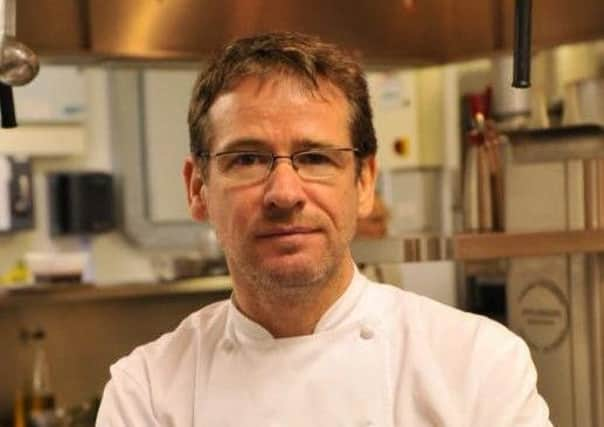Stephen Jardine: Michelin stars can be good for wealth but bad for health


fter a year of waiting, the next UK Michelin Guide will be announced at an event in London a week on Monday. Publication this year is being anticipated like never before. Since the last guide was published, acclaimed chefs including Clare Smyth, Claude Bosi and Monica Galletti have opened new establishments. The guide will deliver the first big verdict on their success or otherwise.
Here in Scotland, excitement is also building. Last year was a disappointment with no new stars awarded north of the border. This year there is speculation that might change in the new edition of the guide. We will just have to wait and see. But one chef across the Channel is waving goodbye to the fear and nerves his British colleagues face ahead of the big day. After 20 years with three Michelin stars, Sebastien Bras this week asked for them to be taken away. His restaurant in Laguiole is one of the best in France but the acclaimed chef wants to hand back his stars because of the huge pressure he feels being judged on every dish he serves.
Advertisement
Hide AdAdvertisement
Hide AdAnnouncing the news on social media, Bras said “I want to give a new meaning to my life ... and redefine what is essential.” Later h He told news agency AFP the decision had been prompted by the enormous responsibility of maintaining three Michelin stars. “You’re inspected two or three times a year, you never know when. Every meal that goes out could be inspected. That means that, every day, one of the 500 meals that leaves the kitchen could be judged,” he said.
Back in 2003 a prominent French chef killed himself amidst rumours he was about to lose his three star status. Since then a further two chefs have handed back stars saying they wanted to pursue a quieter life.
It’s understandable. Getting one Michelin star is a huge achievement for any chef but three stars requires a whole different world of pain. Andrew Fairlie is Scotland’s only two star Michelin chef and he wants no more and no less.
“My aim was always to have 2 stars and that is our benchmark. We are comfortable working at that level day in and day out. I want to go to bed at night knowing exactly what we can deliver. I’ve always said, I’d rather be a strong two star than a weak three star restaurant any day”, he told me.
Consistency is the key here. On a good day, most of us could be capable of doing something in life well. But imagine having to do that same thing perfectly, day after week after month after year. At three star level, Michelin does not allow for bad days at home or headaches or staff shortages or problems with produce. It is an endless quest for perfection without pause or hesitation. To achieve that requires investment in every level of your business. To lose a star puts all that in jeopardy and that is just too much misery for some chefs.
As they look ahead to the Michelin announcement, ambitious chefs might do well to heed the lesson of Bruno Loubet. During 40 years in the business Loubet earned a Michelin star and worked as head chef in some of Britain’s best restaurants before reinventing himself at the helm of The Grain Store which focussed on vegetables rather than meat. For a French chef it was a bold move but it earned rave reviews. However a month ago Loubet announced he was closing the doors to retire to Australia at the age of just 56 to build a house, raise chickens and grow vegetables.
Not very starry, but probably very happy.